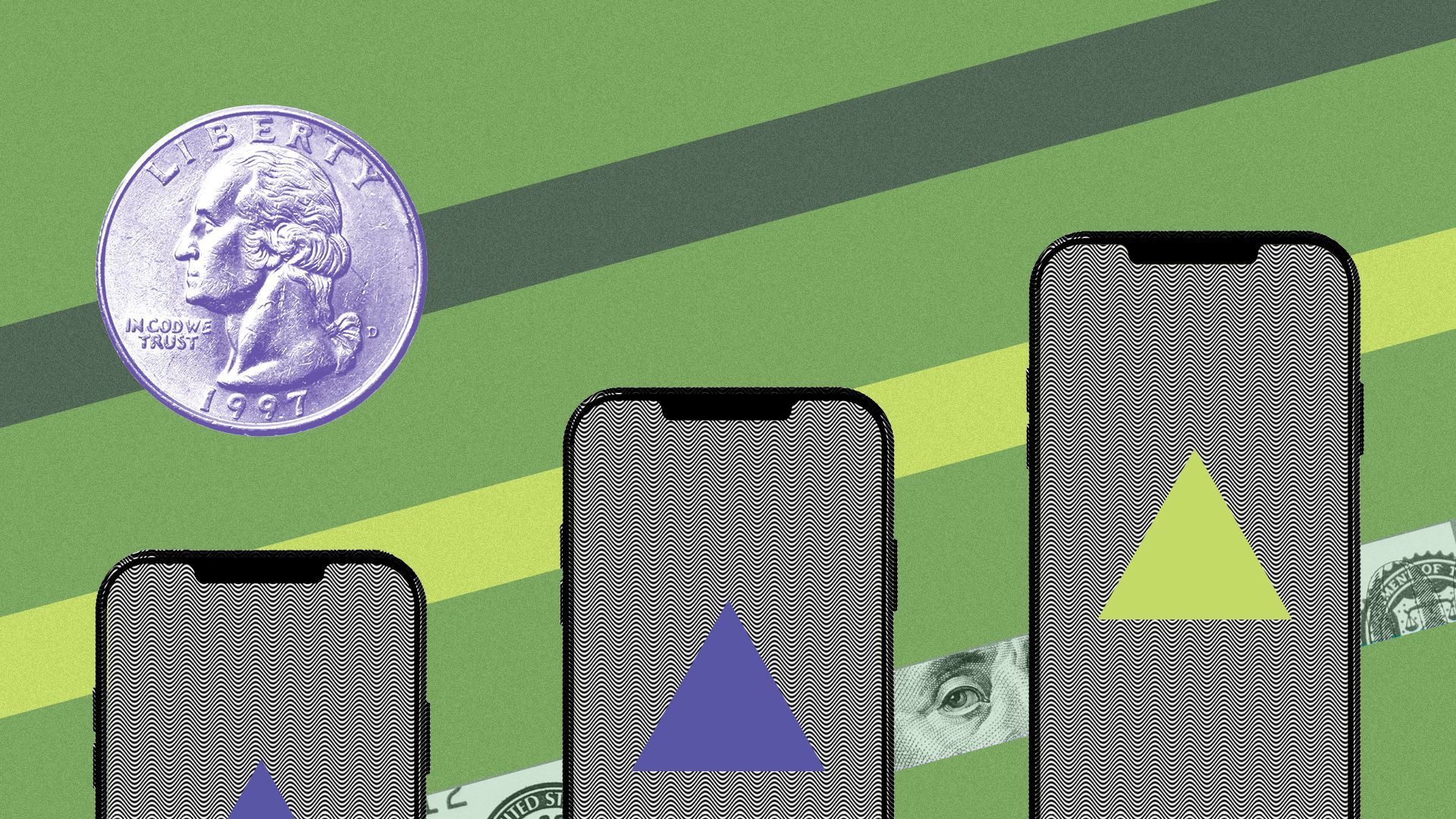Gig workers get a break from Biden Labor Department
Add Axios as your preferred source to
see more of our stories on Google.

Illustration: Brendan Lynch/Axios
Score one for the gig workers. They've won the latest round in the yearslong back-and-forth over whether or not they count as employees under federal labor law and are entitled to earn federal minimum wage and overtime.
Driving the news: The Labor Department on Tuesday announced a new rule that makes it more likely that gig workers get classified as employees — the latest pro-labor turn from the Biden administration.
Background: App companies like Uber and Lyft generally classify their drivers as "independent contractors," arguing that workers have flexibility and control over when and where they work.
- A previous rule from the Trump Labor Department lined up with this reasoning.
- The Trump era Labor board also pointed to the fact that workers buy their own cars — capital investments in their work — as evidence of their entrepreneurial standing.
State of play: In its new proposal, the Biden Labor Department says those Trump era guidelines were too narrow.
- The Trump rule didn't take into account other ways companies can control workers in the workplace — for example, by specifying what they can charge customers or by closely monitoring their work.
- The proposal even appears to directly address ride-sharing specifically by saying "the use of a personal vehicle that the worker already owns to perform work — or that the worker leases as required by the employer to perform work—is generally not an investment that is capital or entrepreneurial in nature."
The impact: "We're hoping this will change lots of business practices," Laura Padin, director of work structures at the National Employment Law Project, tells Axios.
- "There's a lot in there that would justify finding app-based workers to be employees," she said, adding it would give the Labor Department strong footing to bring an action against these companies.
- Yes, but: It's hardly an open-and-shut case. The rule still has to go through a comment period before it's finalized — and could be challenged in court.
Meanwhile: Uber and Lyft sought to downplay the significance of the proposal, saying it would essentially restore the rule in effect during the Obama administration, which did not result in a reclassification of its drivers, as Axios' Nathan Bomey reported.
- Still, their stock prices fell on the news — Lyft was down 12% on Tuesday while Uber shed 10%.
Catch up quick: The fight over this issue has raged for a while, particularly in California, which initially passed a law called AB5 that would have classified many gig workers as employees.
- But companies spent nearly $200 million lobbying to reverse that law via a voter referendum called Proposition 22.
- It sort of worked. The referendum passed, but got overturned in court and is now up in the air.
Zoom out: Some employers have tried arguing their workers aren't really employees ever since the federal labor law first passed in the 1940s, as Josh Eidelson noted in Bloomberg last year.
- When companies like Uber and Instacart came on the scene, with their legions of workers, they reinvigorated the conversation and sparked lawsuits from state attorneys general over misclassification.
- Individual employees had a more difficult time litigating the issue, since their contracts include forced arbitration — meaning they signed away the right to take employers to court, says Padin.
